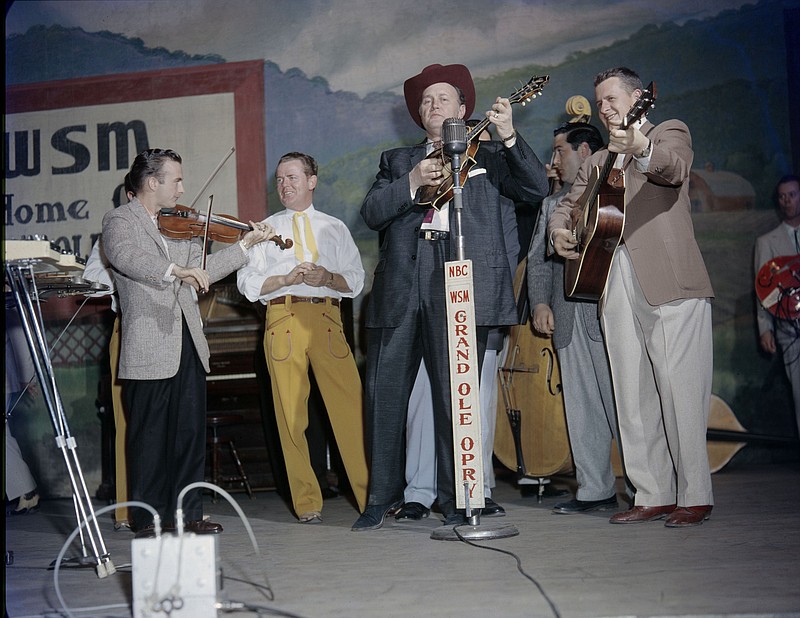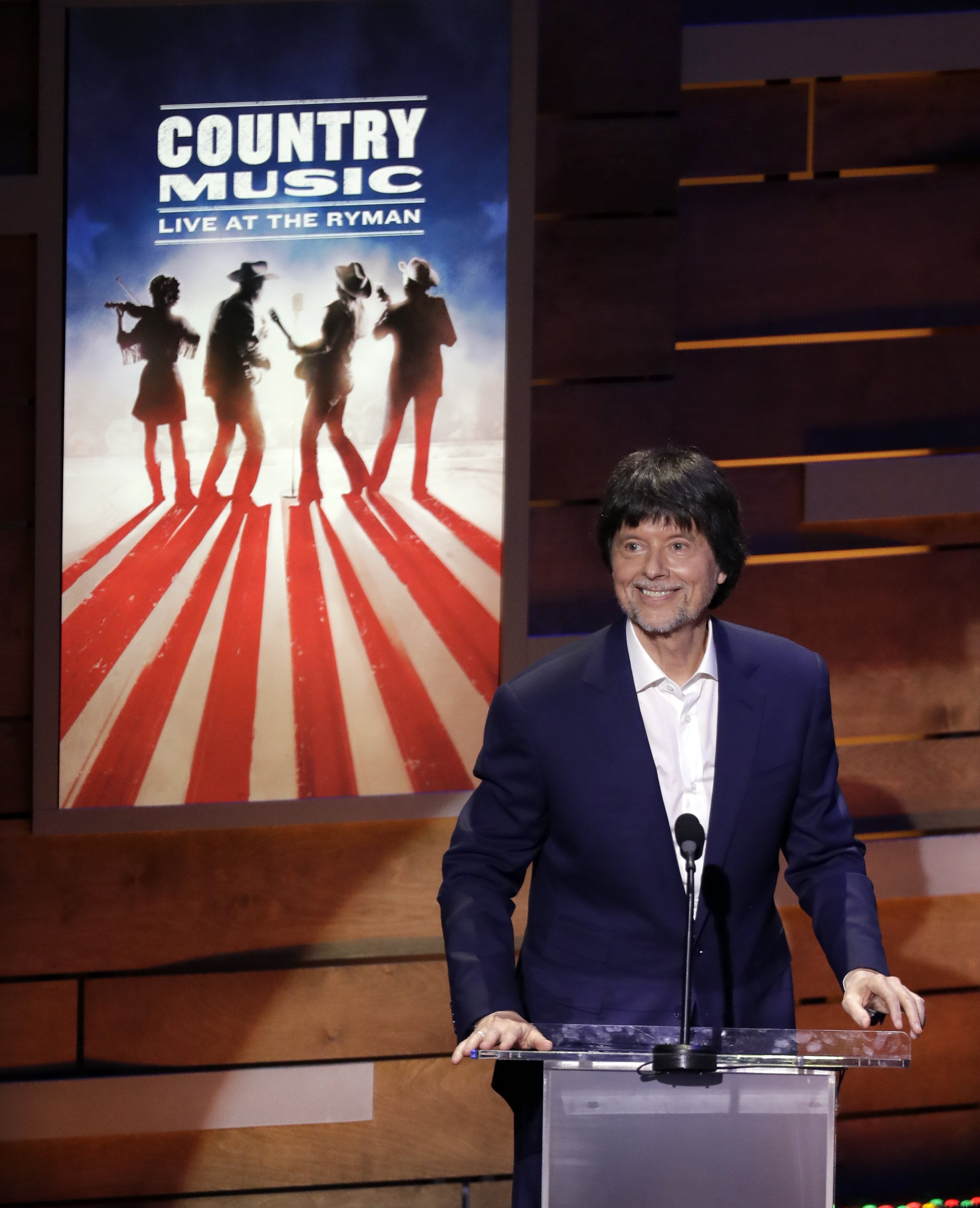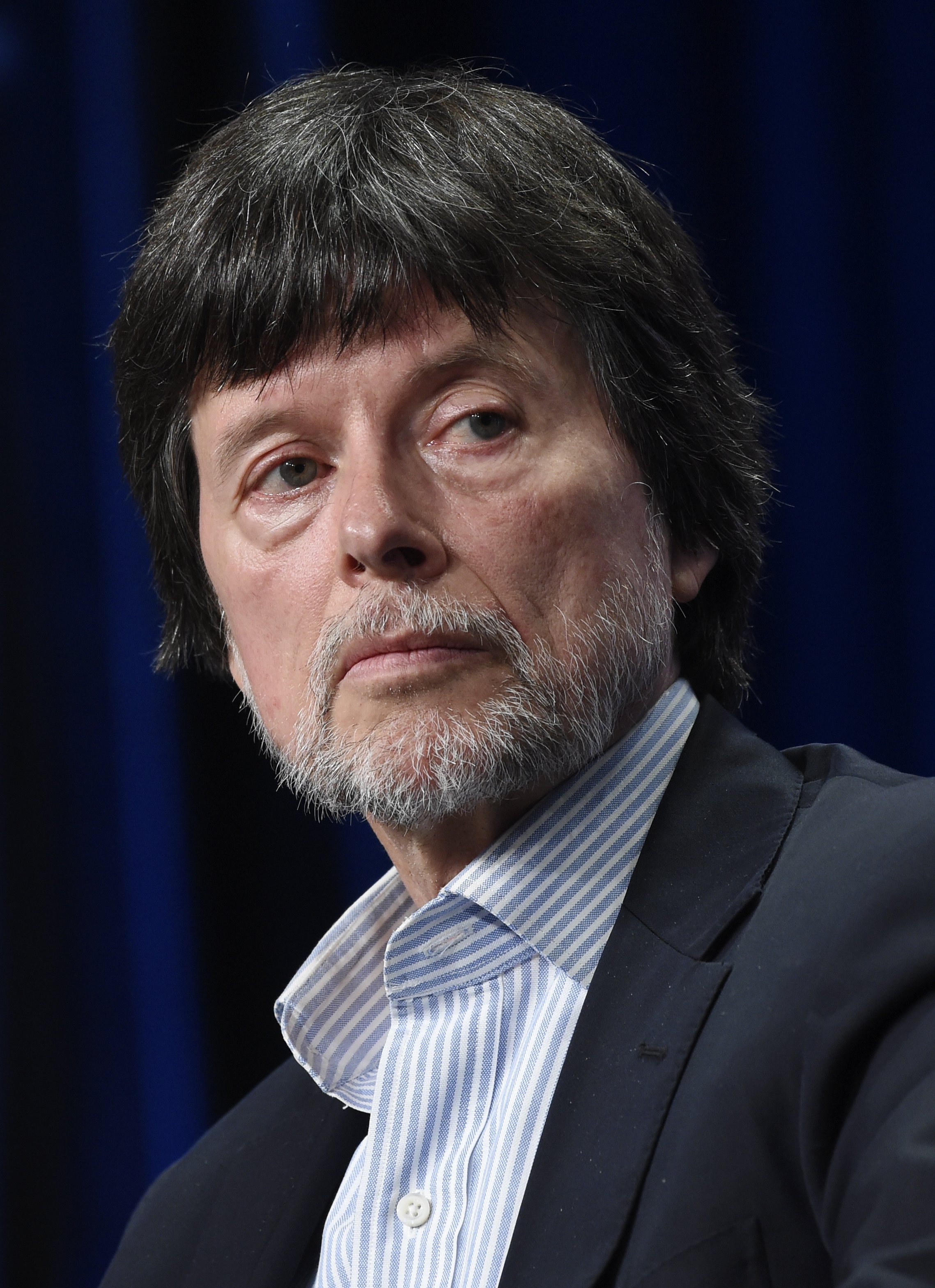"Three chords and the truth - that's what a country song is," - Willie Nelson
KNOXVILLE - What does country music mean to you?
Do the words "country" and "music" conjure the images and sounds of Hank Williams or Florida Georgia Line? Merle Haggard or the Dixie Chicks? Maybe Garth Brooks or Alabama are the best representatives of what country music is all about to you. Or Dolly Parton perhaps.
Was "Hee Haw," with the hay bales, corny jokes and people dressed in overalls, good or bad for the image of the genre?
Like all art forms, country music is more than one thing, and it has continued to grow and evolve over its nearly 100-year history. Documentarian Ken Burns and historian Dayton Duncan have tried to capture as much of it as they could in their latest project.
It took 10 years to create "Country Music - A Film by Ken Burns," a 16-hour series that premieres on PBS stations around the country tonight, including WTCI-TV 45. Included are stories from stars such as the Carter Family, Bob Wills, Patsy Cline, Loretta Lynn, Charley Pride, Willie Nelson and Emmylou Harris.
The eight-part series includes interviews with more than 100 people, including 40 members of the Country Music Hall of Fame, nearly 600 music cues, 3,200 photographs and hours of archival footage, including never-before-seen photos of Jimmie Rodgers and Johnny Cash, among others.
The project meant digging deep into the roots of the music, including ballads, minstrel music, hymns, the blues and "hillbilly music," as it was called in its early years, the 1920s. It was that hillbilly music that was recorded for the first time and played across the airways on radio station barn dances. The series also connects the history of country music to the larger story of America, looking at how artists and songwriting reflected periods of depression, war and cultural upheaval, and how radio and later television affected the art form. It also looks at the birth of country music in Bristol, Tennessee, and how Nashville came to be the epicenter of the country music industry.
Burns and Duncan, who also collaborated on "The Dust Bowl," "The National Parks" and "Lewis & Clark: The Journey of the Corps of Discovery," ended the "Country Music" series in 1996 for several reasons, they said during a press stop in Knoxville in March to promote the show. Duncan said it is important to be able to let history settle out to get a proper backward look at what was truly important and which people or stories survive.
"We stopped in 1996 essentially because we are historians and storytellers and not journalists, and for each story we tell, we need that 20-, 25-year gap," Duncan said.
He added that bluegrass pioneer Bill Monroe died in 1996 and Johnny Cash, who had been dropped from his label, recorded a career-reviving album with rap producer Rick Rubin the same year.
"When that happened, we said, 'We're done. We're good,'" Duncan said.
Burns said he was not a country music fan early on, having grown up a child of rock 'n' roll and rhythm & blues, even working most of his young life in a record store, but when a "dear friend suggested this [country music] as a topic, all of the bells and alarms went off like, 'Of course,'" and that after working on the project, he is now a huge fan of the music.
"As I stretched and learned about all forms of music in order to make this, I became familiar with it," Burns said.
Duncan said country music is many things to many people, but for many non-fans, the image has been that of a bare-footed, overall-wearing hillbilly. Questioned as to whether a show like "Hee Haw" (1971-1993), which was an attempt to make a country-fied version of "Rowan & Martin's Laugh-In" (1967-1973), helped or hurt the genre, Duncan said the show perfectly encapsulated everything that is country music.
"It's like a good country song," he said. "It's simple, but it has every single complication that you can imagine about human existence."
He added that it was important that in the show, the stars, who represented the fans, were making fun of themselves.
"It's OK for hillbillies to make fun of themselves," he said. "If you're not a hillbilly, that's a different matter."
The show also introduced many new stars to the masses and kept the careers of past stars alive, he said.
Burns added that the show was a combination of self-deprecating humor used as both a defense mechanism and a funny bridge to showcase a lot of very talented musicians who were maybe not confident or felt held back because of their twang.
"Gradually, you're seeing in this history the way that a lot of those divisions still remain, but a lot of them have dissolved," Burns said.
The series points out that country music, which is often accused of losing its way, or forgetting its past, has never been just one type of music. Some fans thought Alabama had a little too much rock 'n' roll in their country. The same has been said of Florida Georgia Line and their "bro-country" sound.
"But The Carter Family didn't sound like Jimmie Rodgers or Hank Williams," Duncan pointed out. "Country music is a lot of things and always has been."
Contact Barry Courter at bcourter@timesfreepress.com or 423-757-6354.
When to watch
“Country Music — A Film by Ken Burns” will air in eight, two-hour episodes, with nightly repeats, over two weeks. Air time is at 8 each night, with repeats at 10 p.m. every night except Sept. 24, when the repeat starts at 10:30 p.m.* Sunday, Sept. 15: Episode 1: “The Rub (Beginnings-1933).”Focuses on how hillbilly music first reached new audiences through phonographs and radio; and the careers of the first stars, the Carter Family and Jimmie Rodgers.* Monday, Sept. 16: Episode 2: “Hard Times (1933-1945)”Tracks the growth of the genre in popularity during the Great Depression and World War II as America falls in love with singing cowboys, Texas swing and the Grand Ole Opry’s Roy Acuff.* Tuesday, Sept. 17: Episode 3: “The Hillbilly Shakespeare (1945-1953)”The bluegrass sound spreads in post-war America and introduces honky-tonk star Hank Williams.* Wednesday, Sept. 18: Episode 4: “I Can’t Stop Loving You (1953-1963)”Detours from Nashville to Memphis where Sun Studios artists Johnny Cash and Elvis Presley usher in the era of rockabilly; Ray Charles crosses the racial divide by recording a country album; Patsy Cline introduces a smooth new “Nashville Sound.”* Sunday, Sept. 22: Episode 5: “The Sons and Daughters of America (1964-1968)”Country music reflects a changing America, with Loretta Lynn speaking to women, Merle Haggard becoming “the poet of the common man” and audiences looking beyond race to embrace Charley Pride.* Monday, Sept. 23: Episode 6: “Will the Circle Be Unbroken? (1968-1972)”Country music responds to a nation divided by the Vietnam War as Army captain turned songwriter Kris Kristofferson sets a new lyrical standard and artists such as Bob Dylan and the Byrds find a recording home in Nashville.* Tuesday, Sept. 24: Episode 7: “Are You Sure Hank Done It This Way? (1973-1983)”A vibrant era in country music when Dolly Parton finds mainstream success, Hank Williams Jr. and Roseanne Cash emerge from the famous fathers’ shadows; and Willie Nelson and Waylon Jennings launch the “Outlaw” movement.* Wednesday, Sept. 25: Episode 8: “Don’t Get Above Your Raisin (1984-1996)”The emergence of “New Traditionalists” like George Strait, Randy Travis and The Judds; the rise of superstar Garth Brooks; the return of an aging Johnny Cash.


